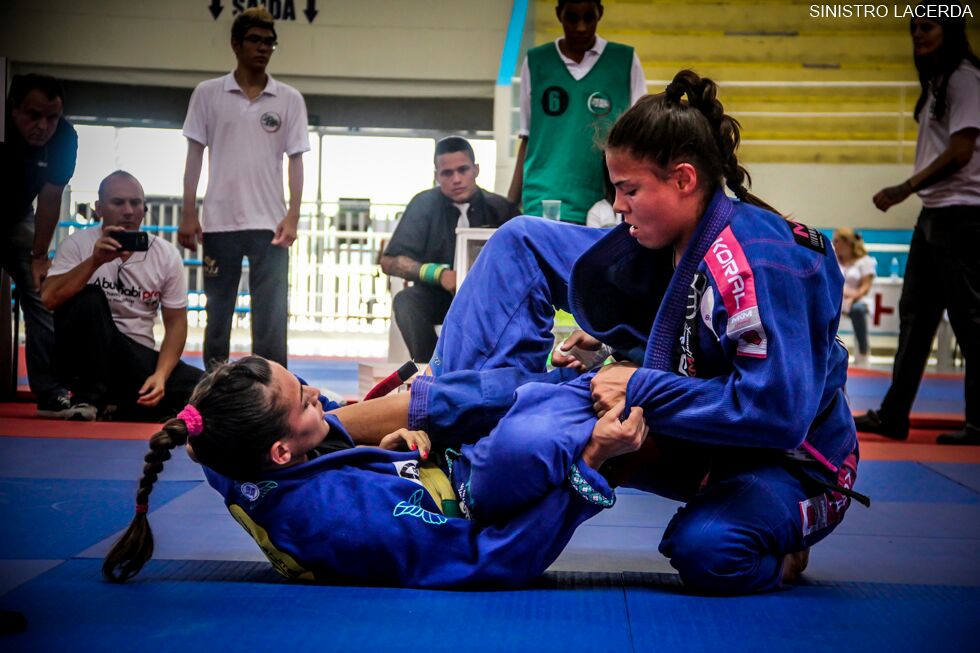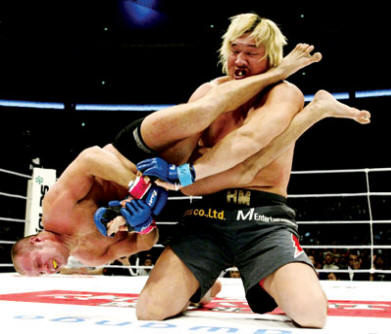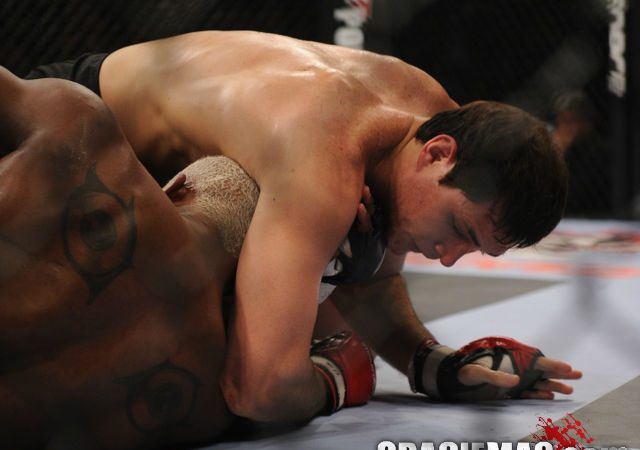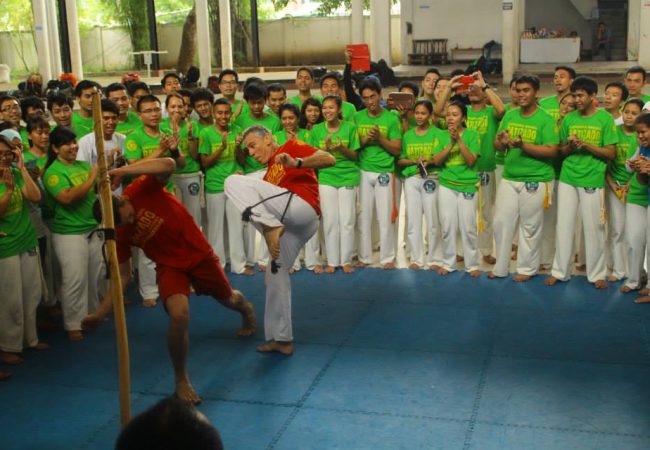Last Sunday in Barueri, Brazil, during the National Pro (tournament that gave away free passes for the winners to fight in the United Arab Emirates), the audience applauded Jiu-Jitsu veterans and beginners. Among the black belts, Monique Elias confirmed the star status by winning the absolute.
En route to the title, Monique collided with the beast Bia Mesquita, Gracie Humaita. The victory came with two advantages, after a technical duel of sweeps and a few foot lock attempts.
To stick with the U$500 award, Mario Reis’s wife got Luana Gomes’s arm (Ribeiro Jiu-Jitsu) in the final of the open.
The Alliance athlete, however, could not repeat the feat in the category up to 75kg, where she dueled with Talita “Treta” Nogueira.
What Monique learned in this campaign filled with emotions? GRACIEMAG discovered.
GRACIEMAG: It was your first tournament as a black belt in Jiu-Jitsu. Were you confident in the victory?
MONIQUE ELIAS: I actually had fought against some of the girls last year: in the Abu Dhabi trials with Talita and in the main event with Bia. Thus, in fact, in the black belt division, a mistake can be fatal. The level is much more professional. I had four matches on Sunday, and the most difficult was the final category, with Talita. I made a mistake in the start and could not fix it, so it cost me a lot. However, it was a learning experience. I deeply respect Talita as an opponent, and as a great athlete that she is. She was better. Now, I have to focus on my mistake and learn from it. I’ll be better in Singapore and get the title.
How do you analyze your victory against Bia Mesquita in the semifinals of the absolute?
I was happy to have won. Anyone who watched should have had some fun. It was a matter of strategy; we both have very good guards, and I wanted to test myself from the bottom. She was upset and said that the arbitration was wrong. I do not agree, and even if the three judges were wrong, an additional advantage would not solve the problem: I had two advantages, made clearly. I expected a more mature attitude on her part, which is a top athlete and is a long time competitor. I remember having gone to my first white belt championship and there was Bia fighting in the brown belt finals. Anyways, I managed to impose my game and I think I had a better strategy. I attacked and felt comfortable.
What do you think went wrong in the 75kg division’s final against Treta? What was missing?
Intelligence. It took me a while to pull guard and when I realized, it took me more time to figure out it would be better to have stayed on top. It’s that thing they say about the black belt: one mistake can be fatal. And it was. I lost two advantages. Even when I win, I learn. I keep reviewing the fights in my head, creating variations and positions that could have been made. I remember I never saw myself prepared to change belts; it was always a Mario’s decision (Reis, husband and teacher). And that makes me run after knowledge. Despite Jiu-Jitsu having this thing where we will never know enough, I always try to improve. I have trained with so many good people that I used to finish practice thinking: “Wow! I have so much to learn.” So, I dedicate a lot. I love what I do and really want to be the best in the world one day.
How does your guard training work?
I train focusing on my difficulties. Because always I played guard, I feel comfortable doing guard. So, I train passing a lot. Mario has a phenomenal guard and pass it to their students. I learn a lot watching Mario roll as well. I like to stretch very much and I do many leg exercises to make me stronger. I am passionate about other sports too, like: biking, wakeboarding, snowboarding, roller-skating, and skateboarding. And, of course, I have my physical preparation with Zaccani Wagner, who is a coach for the Brazilian national judo team.




